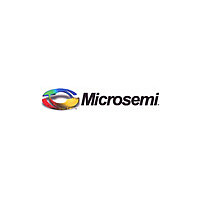ml4833 Microsemi Corporation, ml4833 Datasheet - Page 9

ml4833
Manufacturer Part Number
ml4833
Description
Electronic Dimming Ballast Controller
Manufacturer
Microsemi Corporation
Datasheet
1.ML4833.pdf
(13 pages)
Available stocks
Company
Part Number
Manufacturer
Quantity
Price
Part Number:
ml4833CS
Manufacturer:
MICROLINEAR
Quantity:
20 000
This assumes that t
When LFB OUT is high, I
frequency occurs. The charging current varies according
to two control inputs to the oscillator:
In preheat condition, charging current is fixed at
In running mode, charging current decreases as the
voltage rises from 0V to V
The highest frequency will be attained when I
highest, which is attained when voltage at LFB OUT
is at 0V:
Highest lamp power, and lowest output frequency are
attained when voltage at LFB OUT is at its maximum
output voltage (V
In this condition, the minimum operating frequency of the
ballast is set per equation 5 above.
For the IC to be used effectively in dimming ballasts with
higher Q output networks a larger C
value can be used, to yield a smaller frequency excursion
over the control range (voltage at LFB OUT). The
discharge current is set to 5mA. Assuming that I
I
IC BIAS, UNDER-VOLTAGE LOCKOUT AND
THERMAL SHUTDOWN
The IC includes a shunt clamp which will limit the
voltage at V
a current limited source, typically derived from the
ballast transformer auxiliary winding. When V
V
current and the outputs are off. This allows the IC to start
using a “bleed resistor” from the rectified AC line.
To help reduce ballast cost, the ML4833 includes a
temperature sensor which will inhibit ballast operation if
the IC’s junction temperature exceeds 120°C. In order to
use this sensor in lieu of an external sensor, care should
be taken when placing the IC to ensure that it is sensing
temperature at the physically appropriate point in the
ballast. The ML4833’s die temperature can be estimated
with the following equation:
RT
CCZ
1. The output of the preheat timer
2. The voltage at LFB OUT (lamp feedback amplifier
:
– 1.1V, the IC draws less than 0.48mA of quiescent
output)
CC
to 15V (V
OH
I
CHG
CHG PREHEAT
t
DIS VCO
).
I
CHG
(
(
>> t
CCZ
CH
OH
( ) 0
)
DIS
). The IC should be fed with
= 0 and the minimum
at the LAMP FB amplifier.
600
.
R
)
SET
5
R
. 2 5
T
SET
C
value and lower R
T
CC
CHG
DIS
is below
is
>>
(6)
(7)
(8)
T
STARTING, RE-START, PREHEAT AND INTERRUPT
The lamp starting scenario implemented in the ML4833
is designed to maximize lamp life and minimize ballast
heating during lamp out conditions.
The circuit in Figure 8 controls the lamp starting
scenarios: Filament preheat and lamp out interrupt. C
charged with a current of I
R
up. The time for C
time. During that time, the oscillator charging current
(I
filament preheat, but will not produce sufficient voltage
to ignite the lamp or cause significant glow current.
After cathode heating, the inverter frequency drops to F
causing a high voltage to appear to ignite the lamp. If
lamp current is not detected when the lamp is supposed
to have ignited, the lamp voltage feedback coming into
pin 8 remains below 1.25V, the C
shut off and the inverter is inhibited until C
by R
this manner prevents the inverter from generating
excessive heat when the lamp fails to strike or is out of
socket. Typically this time is set to be fairly long by
choosing a large value of R
CHG
X
. The voltage at C
V
I
X
CC
CC
the ML4833 is Started with a Bleed Resistor from
the Rectified AC Line and Bootstrapped from an
) is 2.5/R
Figure 7. Typical V
to the 1.2V threshold. Shutting off the inverter in
0.34mA
V(OFF)
V(ON)
5.5mA
VCCZ
SET
. This will produce a high frequency for
T
X
J
Auxiliary Winding.
to rise to 4.8V is the filament preheat
X
T
is initialized to 0.7V (V
A
CC
(
R(SET)
P
and I
X
D
.
65
/4 and discharged through
CC
X
C W
charging current is
Waveforms when
/
)
X
ML4833
is discharged
BE
) at power
t
t
X
MIN
(9)
is
9












